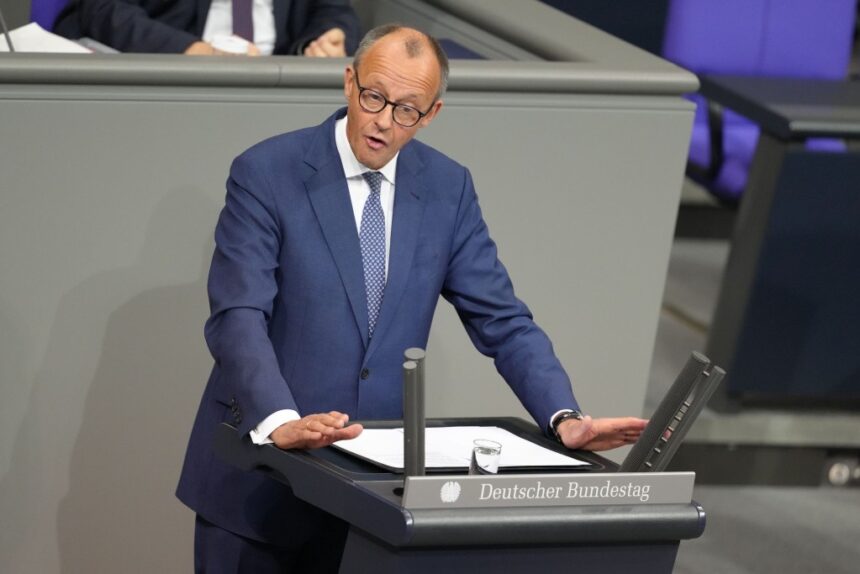By Carla Benkö and Andreas Hoenig, dpa
BERLIN – Germany’s conservative opposition leader Friedrich Merz expects little to pass parliament ahead of early elections in February, dousing hopes from ministers to pass economic reforms in the coming weeks.
Merz, who is running to replace German Chancellor Olaf Scholz, told Deutschlandfunk public radio on Wednesday that only small legislative projects could realistically be implemented in the coming months before the vote.
“There is still a little way to go, but not much will happen in this election period,” said Merz, a centre-right Christian Democrat (CDU).
Scholz, a centre-left Social Democrat (SPD), has made repeated appeals to Merz’s CDU/CSU bloc to work together on legislation.
Scholz’s fractious three-party coalition collapsed earlier this month, leaving his government without a majority in parliament, making help from the opposition even more important if Scholz and his ministers hope to pass proposals through parliament.
“We have passed a whole series of laws together, but it will not be easy to pass a few things at the last minute, so to speak,” Merz said.
Vice Chancellor Robert Habeck of the Greens this week urged Merz to back measures to lower electricity prices for industrial producers in the country as a way of boosting Germany’s stagnant economy.
But Merz expressed scepticism about Habeck’s plans on Wednesday.
“Of course we are looking at this without prejudice, but I have my doubts as to whether this is actually possible,” said Merz.
The since-collapsed coalition was deadlocked over budget issues, with former finance minister Christian Lindner adamantly refusing to allow government borrowing to finance investments and avoid deep cuts.
Scholz sacked Lindner earlier this month, prompting Lindner’s business-friendly liberal Free Democrats (FDP) to quit the government. Scholz has announced a confidence vote in December, which is expected to pave the way for an early election on February 23.
No deal has been reached on the German government budget for 2025, leaving parliament unable to consider spending decisions.
Merz, whose CDU/CSU bloc holds a strong lead in opinion polls, said he hopes to hold swift coalition talks after the election and to quickly form a government capable of taking action.
However, he cautioned that delivering a real economic “turnaround” will not happen so quickly.
Merz’s comments attracted swift criticism from Scholz’s SPD. Dennis Rohde, who oversees the budget for the party, accused Merz of displaying “his lack of expertise and government experience” with his comments.
“Of course, with the CDU/CSU we could immediately provide tax relief for citizens, decide to invest in infrastructure, such as the railroads, and help companies with energy prices,” Rohde said.
Even without a 2025 budget, all those steps would be possible with serious engagement and cooperation from the CDU/CSU, according to Rohde.
“But it doesn’t seem to be Merz’s will for electoral reasons,” he said.
